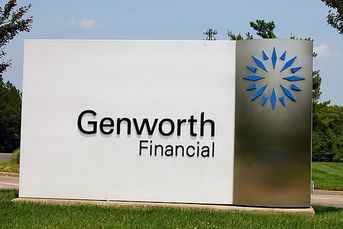New York’s riches come at a price
Love it or hate it, New York elicits strong opinions from just about everyone.
Love it or hate it, New York elicits strong opinions from just about everyone.
A Harris Interactive poll asking Americans what city they would most like to live in or near has ranked the Big Apple No. 1 for the last 10 years running. New York for the last two years also has garnered the most votes as the city people would least like to live in, beating out second-place Detroit.
For financial advisers, it’s mostly a love relationship.
New York offers financial advisers the world’s richest — and most concentrated — market of wealthy prospects. Of the nearly 15.5 million people living in the New York metropolitan area — which includes Long Island, parts of New Jersey and other areas — 720,000 have investible assets of more than $1 million, according to the 2011 U.S. Metro Wealth survey, conducted by Capgemini Financial Services USA Inc. (Los Angeles ranks second, with 257,000 such residents.)
And more than 7,720 of those New York metro area millionaires have more than $30 million in assets, according to WealthX, a consulting firm that conducts research on ultrahigh-net-worth individuals.
“There is no limit to what you can accomplish as an investment adviser in this city,” said Gregory Olsen, a native New Yorker and a partner at Lenox Advisors Inc., which manages $1.3 billion in assets.
“If you’re a hardworking, hard-driving individual, there is no limit to the number of quality clients you can get here.”
(See the latest rankings of the top RIAs.)
What’s more, the city has plenty of room for the fiduciary-style financial planning that registered investment advisers offer, suggested Joel Isaacson, who launched an eponymous RIA firm in Manhattan in 1993.
“The city is still a haven for the wirehouse brokers and the trust companies. Generally, our firm doesn’t compete much with other advisers,” said Mr. Isaacson, whose firm managed $1.75 billion at the end of last year. “It’s a wide-open market and there are huge opportunities here.”
As potentially lucrative as the opportunity is in New York, there is little room for error when starting an advisory firm — or any other business — in the city. The cost of living and doing business in New York is, by far, the highest in the country.
Costs for rent, labor and business services are all extraordinarily high, and if a startup firm doesn’t generate revenue quickly, it won’t be around for long.
HIGH COST OF LIVING
The Council for Community and Economic Research, which assesses the cost of living in 306 urban areas in the U.S., pegs the after-tax cost of a professional/managerial standard of living in Manhattan at 2.24 times the national average. Brooklyn is the second-highest at 1.86, followed by Honolulu at 1.67.
New York was the 32nd-most-expensive among the 214 cities ranked worldwide by consulting firm Mercer LLC in a cost-of-living survey released in July. It has dropped significantly on the list in the last several years because of the falling value of the dollar. Los Angeles (77) and Chicago (108) were the next-most-expensive cities in the United States.
A sampling of the cost of items in New York compiled by Mercer included the following: average rent on a luxury two-bedroom apartment in the city, $4,300 per month; a ticket to the movies, $12.75; and a cup of coffee with service costs an average of $4.40 in Manhattan. New Yorkers who keep cars in the city often pay monthly parking fees that would cover a decent one-bedroom apartment in many other metro areas.
“It’s an awful city to live in if you’re not financially successful,” said Mr. Olsen. “But if you’re a good financial adviser, there’s no better place to be.”
On top of the high costs of virtually everything, there is also the country’s highest tax burden to deal with. The combined state and local tax rate for New Yorkers is 11% for the highest marginal tax bracket.
Higher-income households also have to pay a so-called “millionaire’s tax,” which is levied on individuals earning $200,000 a year or more and families earning $300,000 or more. New York state levied the surcharge two years ago to help shore up its finances. It boosted the combined federal, state and local tax rate to 48% for those in the highest tax bracket. And though it is scheduled to expire at the end of the year, there is a good chance that the state will extend it.
“The risk to businesses and wealthy individuals is that the state will make a habit of this whenever it gets into fiscal trouble,” said Nicole Gelinas, a senior fellow at the conservative Manhattan Institute.
Of course, New York has come out of the financial crisis better than many expected. It still has one of the largest municipal economies in the world. Employment has grown modestly since August 2009.
However, New York is as fiscally challenged as any city in the country. While it has a diversified economy, it also has a projected $67 billion budget to balance in fiscal year 2013. And it remains dangerously dependent on Wall Street, with the financial services sector accounting for one-third of the city’s personal income tax receipts, Ms. Gelinas said.
Although the big investment banks have substantially recovered from the financial crisis, thanks largely to the support of the federal government and Federal Reserve Bank, their future remains cloudy.
Many analysts believe that the still-uncertain regulatory environment could permanently hurt the profitability of the Wall Street banks, and by extension, the city that relies on them for tax revenues.
“The big risk is that if Wall Street starts a structural decline, the city may not have the tax base to support itself,” Ms. Gelinas said.
ABILITY TO ADAPT
Mr. Isaacson, who grew up in New York, doesn’t worry about the city’s ability to cope. “The city is pretty well-diversified. We survived the collapse of Lehman Brothers [Holdings Inc.] and Bear Stearns [Cos. Inc.],” he said. “People are adaptable here, and sooner or later, the wirehouses will adapt, too.”
The adaptability of the city comes largely from the fact that it continues to be a place where people want to live and visit. The city’s appeal is not surprising. From a lifestyle perspective, the breadth of cultural, culinary and entertainment opportunities is unparalleled elsewhere in the world. Between the theaters, museums, galleries, sporting venues, concert halls, restaurants and nightclubs, New York has something for everybody.
“In practically every cultural genre, New York is at the top, and the sheer abundance of things to do is overwhelming in a good way,” said Amanda Angel, editor of the “This Week in New York” section of Time Out magazine. “The city is an incredible melting pot of artists, entertainers and chefs who want to prove themselves, and it inspires one-upmanship. The result is that you have an amazing range of things you can enjoy.”
Learn more about reprints and licensing for this article.




